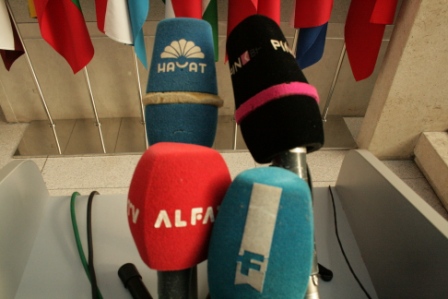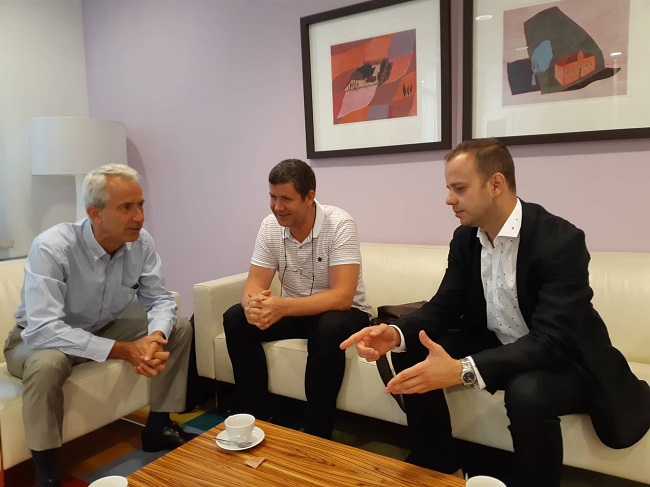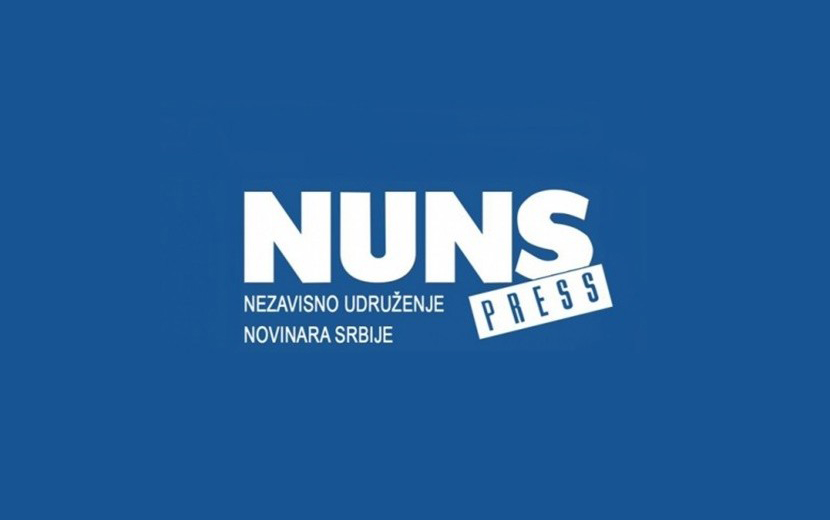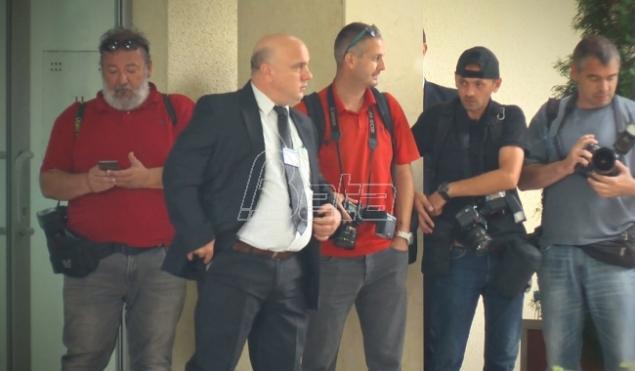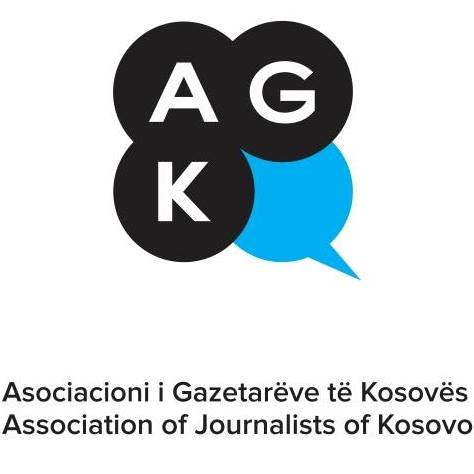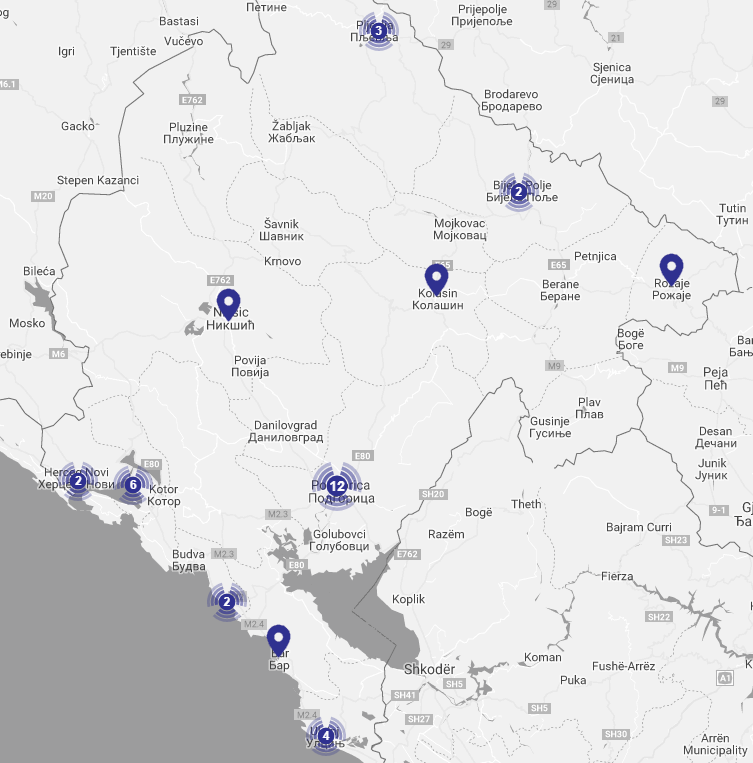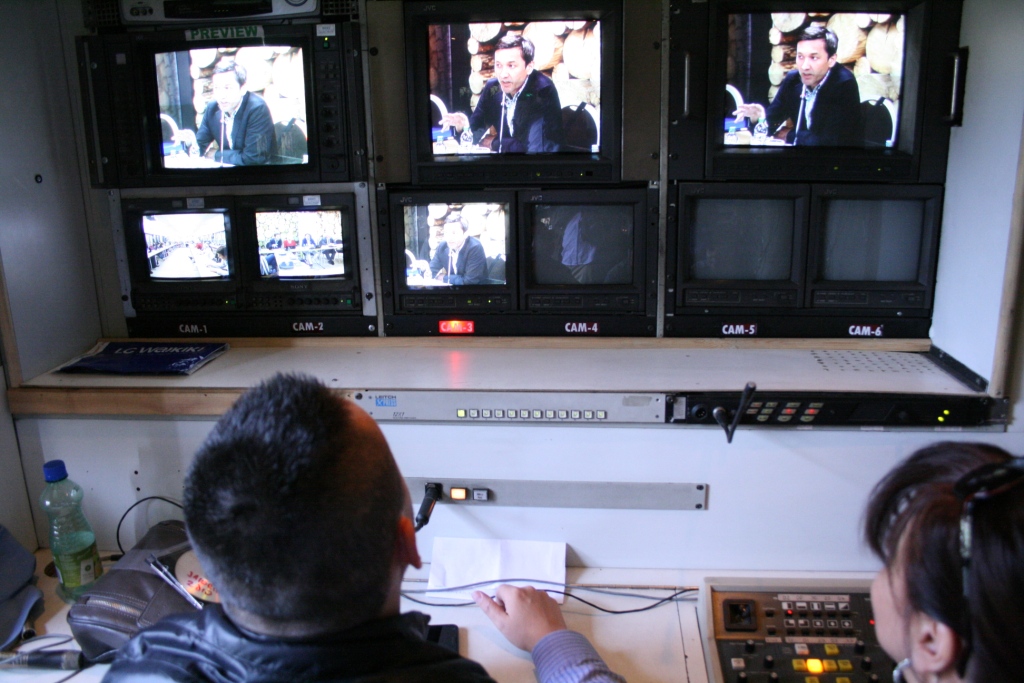SARAJEVO, 15.08.2018.-According to their experience, Press Council of BiH and online media confirmed that over 60 per cent of media houses to whose reporting general public and citizens usually complain are indeed media houses with no Impressum- we don’t know who the owners are, who the journalists and editors are, there are no addresses or contact phone numbers.
This means that people (viewers) that are offended or insulted by certain posts posted on web pages of these media houses cannot get any satisfaction, nor receive public apologies, as these media house can easily continue to spread false and fake information thus confusing the public audience. Nermina Voloder, a female surveyor, and researcher has an article (text) posted by Sarajevo Media Center proved that a significant number of media houses that, despite the fact that they rely on public budget financial means in the first place, have no Impressum and there are platforms amongst online media that have not even been registered as legal and official businesses, so the question is who is backing them up, who is supporting them and what is the purpose of their activities.
“We live in times loaded with many false and fake news, manipulations, fabricated news, news that have been redesigned, rectified and tailored to favor certain individuals or groups as they all reach viewing audience and all of this false and fake news is followed with enormous amount of comments resulting in the occurrence of vast hate speech and this goes on and on in this bedazzled circle. We witness a great number of online media houses with absolutely no information regarding the contact details of responsible people and these pages often have no contact numbers in case someone decided to reply, respond or deny posted false information, lies or manipulation and this person eventually wouldn’t know whom to address”, explained Ljiljana Zurovac, executive director of the Press Council of BiH.
She emphasized that freedom of information must be followed by the responsibility of information being posted in public. “During the present, that is, during the election year we are in, the so-called online media emerges and appears out of nowhere and it is certain that political parties or individuals support them (we don’t know who they are), but we could only assume this, according to contents they post, mostly in order to degrade and devalue their political opponents or remove them from political scene thus directing the general public against them. These people are recognized as sleepers that suddenly “wake up” and become active every two years (elections are held every two years in BiH); they are engaged for few months and they vanish once again, while we have no information regarding the owner’s details and so on. It is thus impossible to incorporate and integrate these kinds of media into the Election Law of BiH and put them into the framework of regular and acceptable behavior during the pre-election period, particularly during the pre-election silence period”, reminds Zurovac.
It was because of this specific situation that the Association of BH Journalists, along with their partners: Press Council of BiH, Media Center and JaBiHEU, a local NGO, have altogether been instigating and insisting on passing the law that would advance media space and information market in BiH, through the implementation of the following project “Media and Public Reputation”. This project’s goal is to provide the protection for free expression and speech, to reduce pressures on journalists and to promote free access to information through the media ownership transparency, through transparent media financing from public budget lines and through the implementation of European standards in this particular field.
Currently, the preparation of this law, that would regulate this specific field, is in ongoing stage, including the participation and involvement of international and local experts, various institutions and their representatives, non – government organizations and other interested parties. “Non – transparent cash flows directed to media houses, as a consequence of the unsettled media market in Bosnia and Herzegovina, brings media houses into financial dependency. This dependability necessarily contains requests and demands by political loyalty, including serving to particular political, ethnic, national, economic or other lobbies, interest-based groups; instead of serving the public, which consequently questions the public media reputation and integrity, its authenticity and public trust and confidence in contents and programs that media houses broadcast.
Due to non – transparent spending of budget money directed to media financing at all governing levels in BiH, non – transparent and non-democratic ties and bounds between politicians and media are being established as a result”, explained Arman Fazlic, website, and publications editor and administrator with the Association of BH Journalists. According to available information provided by special marketing agencies, the financial means for marketing in media have, for the period of last 10 years, decreased by 80%, but the means deriving from the official authorities have become more significant, including grants, commercial advertising, death announcements etc.
Sanela Hadzic, a female surveyor, and researcher with Sarajevo Media Center said that there are no international norms bounding any country to ensure and provide media ownership transparency, but this request is implicated in all international documents, with the insisting on guarantees related to freedom of expression, media pluralism and rights to receive and be provided with information.
She emphasized that media ownership transparency is important above all, for the prevention of corruption and money laundry, and that in the world, especially after the affair of Mossack Fonseca or Panama Papers and similar, more and more countries decide to establish public registries with relevant and accurate information, regarding the details about the company owners, including media owners as well. “Best samples of registries shall include information, not only about nominal but also about intermediate and final owners. In some countries, the procedure of licensing of TV and Radio broadcasters include information collecting regarding the political ties by persons having shares in TV and radio broadcasting houses, as is the case in Great Britain. In countries such as Norway, Latvia, and Iceland, there are applications with required information regarding the ownership over electronic, printed and online media. Norway even passed to Law on Transparency of Media Ownership and in Croa- tia, the transparency norms exist as part of the Law on Electronic Media and Law on Media”, explained Hadzic and highlighted that greater scope of information would ensure and provide better opportunity for following of different interest, including those of media ownership, so some countries require information regarding media companies and their interests in other non – media companies or they seek information on what kind of business subjects ties exist and who is having close contact with media owners what do they have in their possession (including assets and properties).
Turcilo warned that the general public, that is, citizens, unfortunately, do not have sufficient developed competencies of identifying and recognizing the handle of power and mechanisms of influence in media. “I am afraid that, even if we manage to establish and define the Registry of Media, with clear list of media owners, it will take some time until citizens learn and get used to checking this kind of information and accordingly, have thorough thinking about certain media houses But, what is also important to outline, is to insist that media should have clear, clearly recognized and easily accessed Impressum with identified information regarding the owners, including also the persons writing for particular media house, editors and directors as well.
This shall enable citizens to have better comprehension and understandings of the program contents in the significantly wider sense, but would also allow them to acquire their legal rights should they complain regarding the contents posted by certain media. Many websites operate with no Impressum, and if you want to file in a complaint to Press Council of BiH for inappropriate contents – the rule defines that a claimer should send a request to the editor to rectify, re-correct or eventually remove the disputable content, before filing in a complaint to the Council. How can this be done if there is no information about the editor?
Therefore, it is clear and obvious that particular media houses deliberately and intentionally avoid being transparent in order to avert responsibility. This trend should be changed”, explained Turcilo. Zurovac also reckons that an insignificant number of citizens decide to check Impressum of certain media. “Significant number of people, randomly, non – selectively and based on ad – hoc belief, accept all information they encounter on the internet, including information posted on social media, considering this information to be true and correct; regardless to the fact that this can be quite opposite, since the information posted on the internet could lead them to make wrong decisions.
It is, therefore, necessary to create solid law on media ownership transparency, as soon as possible, and this law should have the guideline that would legally oblige every single media house to have Impressum, including the information about the owners, editing office with precise details regarding the people being engaged there, contact phone numbers, addresses and thus additionally send a clear message to those willing to start this particular business, that they shall be legally obliged to share all of the above-mentioned information”, said Zurovac. The ownership transparency issue in media sector has been treated as one of the most crucial question in reports provided by the European Commission, regarding the progress of BiH society, as they announced that this specific issue shall be subject to detailed discussion during the releasing of opinion by the European Commission, as far as the BiH application for joining the European Union is concerned.
“Media are socially responsible organizations ensuring that citizens, as users of their services, receive fair, objective, duly and checked information from unbiased sources and through unbiased channels, and it is through media ownership, that ties between owners with political, economic and other powerful figures, can be “noted”, as all of this would allow citizens to recognize and identify mechanisms of selectivity, interpretations, and contextualization of news and information in particular media houses. Therefore, ownership transparency enables citizens to note purchases of power, that may be bound to media, and thus affect and influence their contents”, explained Lejla Turcilo, a professor at the Faculty of Political Studies in Sarajevo.
Communication Regulatory Agency in BiH defined relationships in electronic media, because if someone decided to broadcast the program, she/ he must be provided with the license to use frequency (which is legally treated as national property), and in order to obtain this license, she/he must submit the company registry certificate issued by a local court. License holders for using frequency must report every change in ownership structure and cannot sell their license/s to themselves or transfer them/it from one owner to another; instead this must be approved every time by the CRA officials – explained CRA officials and admitted that even they cannot be certain whether the company court registry (submitted by new applicants) always contained true and correct information, as far as the information about media owners is concerned, or whether there was a third party standing and backing them up. Hodzic thus reminded that there were CRA registries for license users for audio and visual broadcasting, but the information on intermediate and tied (linked) owners was not listed within these registries. Apart from the program content being broadcasted, ownership over media houses is also important as far as the labor rights are concerned, including all staff be- ing employed and engaged with certain media house, since these rights are often violated, although no one ever releases these kinds of problems.
“Female and male journalists in BiH are mostly deprived of labor rights in the media industry – there is a very limited number of media houses that defer all legal duties defined and prescribed by the labor laws, as far as media employees are concerned. Unsettled media market in BiH, the unclear ownership structure of television, newspapers, radio station and websites, political influences and pressures on journalists, turned, to some extent, media professionals into a state of a complete dependability. How many female and male journalists are on the market, how much do they earn and what are the monthly wages (salaries) they receive, how many of them are engaged in more than a single project, how much do freelancers make, who, among these receive untaxed honorary amounts based on cash – in –hands method, who works by the author’s contract rules; altogether represent issues and questions that any democratic society (system) should reply and answer to, by the implementation of legislative, in terms of ownership over media houses, including financing system and commercial advertising in media houses”, appealed Fazlic.
Jasminka Dzumhur, Ombudsman/Ombudsmen for Human Rights in BiH, reminded that journalists have often been recognized as victims in relation with fundamental violations of human rights, but they, in most cases did not openly talk about their problems. “They are afraid that they might lose the status they already have, although their status is not labor – legal status, in terms of legislative; it is rather considered as receiving of minimum honorary, mostly in cash, without having paid legal contribution for health, social and other types of security and the owner must be held responsible for labor – legal status of all employees and eventually show, in most appropriate and transparent way, the details of persons she/he, as the owner, employs, so the general public and citizens could be aware of the credibility these employees have, as far as the labor rights of employees are concerned”, explained Dzumhur.
Turcilo further added that, when it comes to legal rights of employees in the media field, transparent ownership allows clear setting of the principles, regarding the negotiations with employers, if required details about the owner were clear and transparent as well. “It conduced to greater responsibility of the owner towards the employees, because it would then be possible to make clear distinction how the owners, individuals or companies increased their incomes over their employees shoulders, because they mostly made their extra profit based on the principle of the initial accumulation of their capital”, claims Turcilo. Hodzic concluded that in BiH, at this particular moment, the regulation of media ownership and me- dia financing in BiH has been on a minimum level, because hidden ownership has in no way been disallowed and disapproved, including the instrumentalization of public funds for personal promotion, instead of promoting journalism and advancing the public need for communications.
This text is a part of E-Bulletin– sixth edition of special serial of BHN online bulletin implemented through the “Media and Public Reputation” (origin. “Mediji i javni ugled”) project, also representing a contribution to public debate regarding the transparency of media ownership and upholding and encouraging the passing of set of laws aimed to advance media field and information market in BiH.



